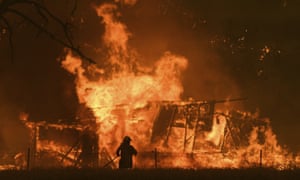The elephant, it seems, wasn’t even in the room during the recent Drought Summit at Mooroopna.
 |
| Federal Agriculture Minister, David Littleproud. |
However, the Federal Agricultural Minister, David Littleproud, the Drought Envoy, Barnaby Joyce and the Federal Member for Murray, Damian Drum, and about 100 agitated others were.
Sadly, I wasn’t there, but inquiries suggest that had the elephant turned up, it would have been turned away as the thought that we had caused the troubles that malign the lives of our farmers did not have much currency among those in the room.
Australia, like the rest of the world, is barrelling down the climate change highway.
Most everything the climate scientists predicted has and is happening, but with one significant difference; it’s unfolding somewhat quicker than envisaged. Yes, the abyss is almost visible.
There was, according to reports, a widely held view at the drought summit that the water shortage compounding the troubles of our farmers was a “man-made drought”, meaning the country’s water resources had been badly managed.
Such conversations are little more than a distraction from the real game, the fact that our disrupted climate system has changed weather patterns and the reality is that we get less rain where we need it and more where we don’t.
And when we do get it, it comes in great bursts, quickly runs off, leaving a scant amount to soak in, and as it vanishes so does some of our rich and valuable top soil. The long-term benefit fo that downpour is damnably slim.
The Intergovernmental Panel on Climate Change (IPCC) knows about the elephant and in it latest report outlines the climate effects of 1.5ºC and 2ºC warming and discusses the efforts that will have to be taken to hit those targets; targets that current emissions-reduction pledges get us nowhere near where we need to be.
The IPCC said our transportation, land-use, building, energy, food, and other systems need to be redesigned from the ground up to reduce emissions and prepare for a warmer world.
 |
| Drought envoy, Barnaby Joyce. |
The conversation we must have to prepare for that warmer world is not one Minister Littleproud, Drought Envoy Mr Joyce, or local Member, Mr Drum, are willing to initiate as the essence of where the discussion must go contradicts their fundamental political ideologies.
It was only a week ago that the leader of the CSIRO’s Earth Systems and Climate Change hub, Dr David Karoly, who is known to many in the Goulburn Valley, echoed an earlier comment when he said Shepparton was inline for successive days of 50 degrees Celsius.
Those temperatures combined with a drought, man-made or otherwise, will force acknowledgement of that elusive elephant and with it serious discussion about seeing Australia embrace the idea of a “climate emergency”, something now being discussed by Britain’s House of Lords.
And while we contemplate that idea, it is interesting to note that Australia, according to the Bureau of Meteorology, has just left its hottest March on record.









